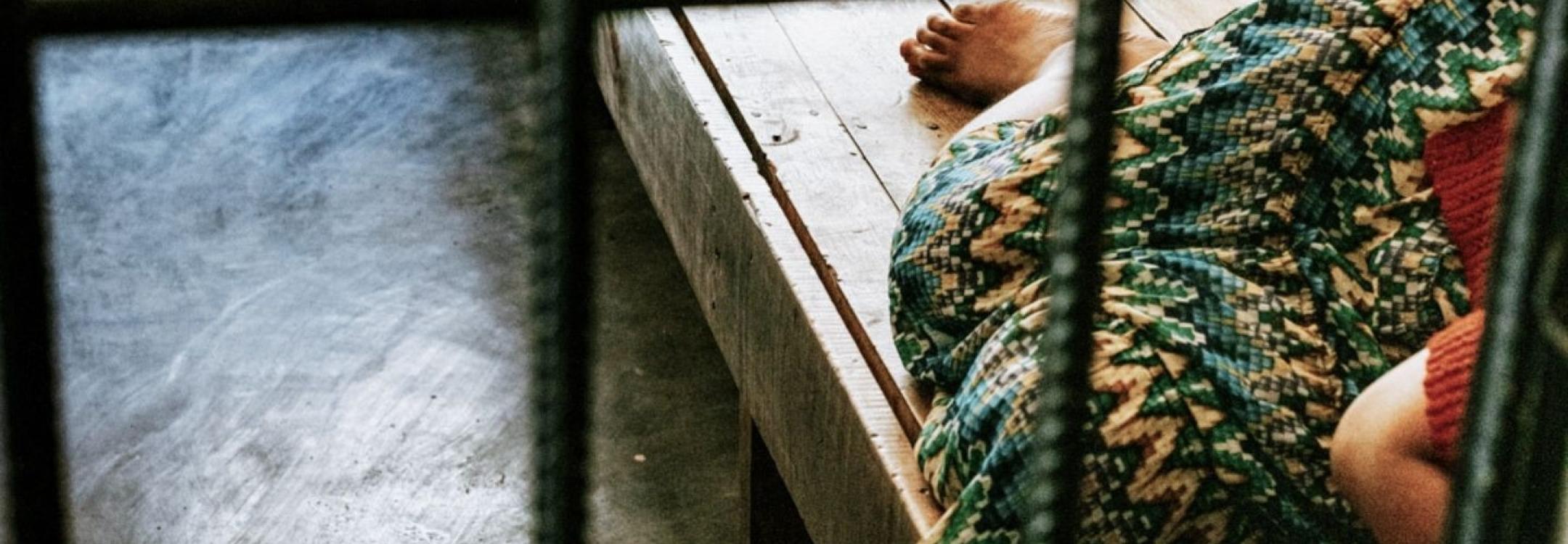
As part of our Global Campaign on Women and Prison, we are sharing insights and experiences from national preventive mechanisms as they respond to issues of risk for women deprived of liberty. Here, Naushan Muhaimin, Director of the National Preventive Mechanism (NPM) of the Maldives, answers our questions on the use of body searches, which can affect women deprived of liberty and their loved ones.
APT: Could you introduce the work of the NPM of the Maldives?
Naushan: The Maldives signed the Optional Protocol to the Convention against Torture (OPCAT) on 14 September 2005. As prescribed under the OPCAT, the government of the Maldives legislatively designated the Human Rights Commission of the Maldives (HRCM) as the National Preventive Mechanism (NPM) with the ratification of the Anti-Torture Act (13/2013). Human Rights Commission officially launched the work of the National Preventive Mechanism on 28 April 2008.
Our vision is to “prevent torture and other ill-treatment of persons deprived of their liberty and promote a preventive culture throughout the Maldives”.
In line with the OPCAT, we have established a system of regular visits to all places of detention across the atolls that make up the Maldives. We also make recommendations to further strengthen protections for people deprived of liberty, in accordance with international standards, based on the information obtained during these preventive visits. These recommendations form the backbone of a continuous and constructive dialogue with the Government of the Maldives to assist it fulfil its legal obligation to prevent any form of ill-treatment or torture.
APT: Our campaign is focusing on practices that present risks for women in detention. One of them is body searches. Have you identified body searches as a practice of risk in the Maldives?
Naushan: “The main types of searches practiced on women in the Maldives are pat-down searches, strip-searches and internal searches (intrusive search), although internal / invasive searches can only be conducted after a court order has been granted. Through our monitoring, we have identified body searches as a practice of risk.
We have been told in interviews that correctional officers do not treat the prisoners with proper human dignity when they conduct searches. They do not provide prisoners any items of clothing during the searches and they can use disrespectful language.
Through our visits, we also found that some women, especially older women, avoid travelling out of the prison for medical purposes and so on, to avoid being subjected to strip searches.
APT: What have been your main findings and recommendations? Have you identified specific groups of women who face particular risks?
Naushan: Although searches are conducted by women staff and out of the sight of custodial staff of the opposite gender, there have been instances when women detainees face discrimination because they are subject to unnecessary searches or because of how these searches are conducted. Some groups of women faced particular risks, including women with disabilities, foreigners, elderly women and women with specific kinds of communicable diseases. It was also brought to our attention that these searches are carried out by staff who are not properly trained in correct procedures. On top of that, female detainees alleged that if grievances were raised against the officers, the complaints were either dismissed, not investigated further or were used against the person who raised the complaint. This regrettably paves the way for many women in detention to be deprived of their fundamental rights in terms of respect and human dignity.
Based on these findings, the NPM has proposed and advocated for solutions to these problems, including:
- Strictly following the standard operating procedures for body searches set out in Maldives (Regulation no: 2015/R-3) and strengthen such procedures to prevent abuse of the practice
- Conducting further, specialized training for law enforcement personnel and sensitizing on the importance of dignified search methods, civil or military personnel, medical personnel, public officials and others on prevention of torture and ill-treatment
- Strengthening complaints mechanisms to ensure that complainants and witnesses are protected against intimidation or reprisals as a consequence of making a complaint or giving evidence, ensuring that complaints are dealt with promptly, and respecting confidentiality if requested by a complainant
- Ensuring proper record-keeping by authorities where body searches have been carried out.
APT: Have you noticed any changes in relation to body searches because of the NPM’s work?
Naushan: Ever since we started our visits in 2008, we have been concerned by the issue of strip searches in women’s prison and have made recommendations to address the issue at a policy level. The NPM also highlighted concerns around this practice when the Anti Torture Act was drafted in 2012 (ratified in 2013). Following many recommendations and consistent lobbying, we have noticed that fewer unnecessary strip searches are being conducted than before.
APT: What are the main challenges you have face in your work to ensure women are safe from the risk of abuse during body searches?
Naushan: There are two major challenges NPM Maldives faces. The first is around the implementation of the NPM recommendations by the relevant authorities. It is not uncommon to see a low percentage of our recommendations implemented. The second is the lack of financial autonomy - not being allocated the budget we propose limits the number and scope of NPM visits, as well as follow up visits to places of detention.
